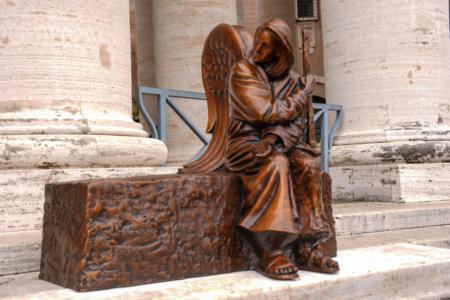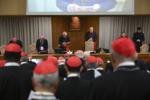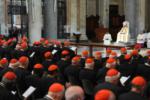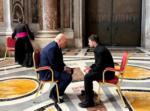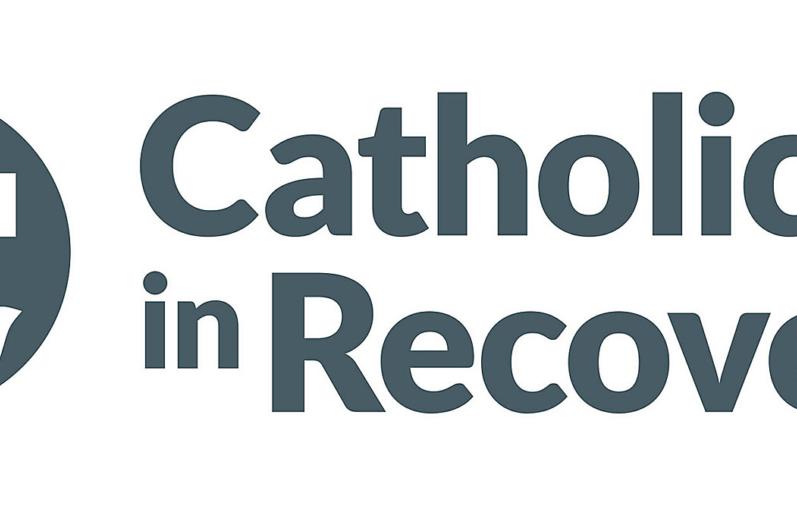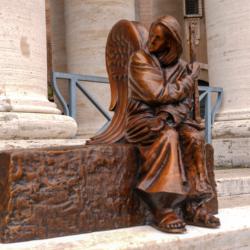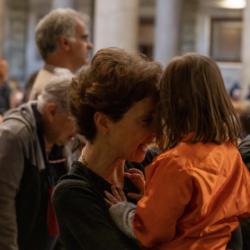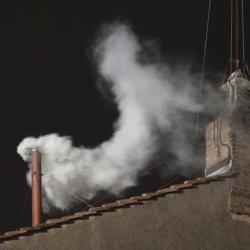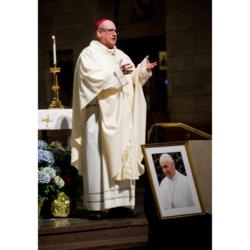Catholic in Recovery addiction healing program comes to archdiocese
IPSWICH -- Deacon Jim Greer came across Catholic in Recovery while researching addiction recovery services. As co-chair of the archdiocese's opioid task force, he was familiar with 12-step groups and other similar programs. But he found that Catholic in Recovery was something different: a recovery program that incorporates Catholic spirituality, creating a space where people can speak about addiction in the context of their faith.
In 12-step recovery programs like Alcoholics Anonymous, participants speak of a "higher power," but not any particular religion. In contrast, Catholic in Recovery (CIR) acknowledges Jesus Christ as that higher power, utilizes prayer and Scripture at meetings, and incorporates Catholic spirituality and sacraments in the journey of recovery.
"It's a spiritual problem that we're dealing with first. And those outside of spirituality programs don't see that. So, the success rate in this type of program is much higher because there's a spiritual conversion that happens," Deacon Greer said.
Deacon Greer and Eileen Klapprodt, a graduate of the Master of Arts in Ministry lay formation program at St. John's Seminary, have been working to begin CIR meetings in the archdiocese. Klapprodt began a CIR general recovery group earlier this year, which meets at Our Lady of Hope Parish in Ipswich. Deacon Greer has been using an adapted version of the CIR program in prison ministry.
CIR was founded in 2017 by Scott Weeman, author of "The Twelve Steps and the Sacraments: A Catholic Journey through Recovery." He was a nominal Catholic when he began his recovery journey, which ended up also being a journey back to the Church.
"He learned that he had to surrender not only his unhealthy attachments but also his life to God. And he really wanted that God to have the face of Jesus Christ. That led him back to the Catholic Church," Klapprodt said.
In his book, Weeman points out how the 12 steps of addiction recovery seem to correspond with the sacraments of baptism, reconciliation, and Holy Communion.
"Scott saw the beauty of our faith and how it lends itself well to the recovery method. So, he integrated the 12-step principles with Catholic spirituality," Klapprodt said.
CIR currently has 55 different meetings across the United States, Mexico, and Canada. There are also over 25 virtual meetings. These may focus on particular addictions and attachments -- alcohol, drugs, pornography, sex, gambling -- or serve different demographics, such as friends and relatives of people in addiction. CIR also organizes daylong or weekend-long retreats. Meetings take place in English or Spanish, but Klapprodt said they hope to add other languages in the future.
Klapprodt's group began meeting on Pentecost Sunday. They begin each session by reading the CIR mission, the 12-step principles, and meeting guidelines, so newcomers know what to expect. They introduce themselves and have the opportunity to share their experiences without comment or judgment. Those who attend regularly may share updates about how they are doing. They mark milestones of continuous sobriety or abstinence, and celebrate those participating in the sacraments for the first time ever or after a long time away.
At each meeting, they read the upcoming Sunday's Gospel passage as well as a reflection that relates it to the journey of recovery.
"It is truly amazing to see how, each week, the Word of God speaks to those of us in recovery, like that message is made for me. To share that with these people who so desperately want to draw closer to our Lord is such a gift," Klapprodt said.
Her group meets on Mondays, so they have several days to reflect on the readings before hearing them again at Sunday Mass.
"When I sit and listen to those readings again, during Sunday liturgy, wow! It is like Jesus is next to me, speaking to my heart," she said.
Deacon Greer's CIR group looks a little different: he conducts meetings as part of his prison ministry, and they are open to inmates of any religion. In this environment, he tries to relate the Gospel passage to the experience of incarceration as well as recovery.
"I think the biggest focus that I have on this is to try to direct them to the fact that God loves them unconditionally, and that even though they're within the constraints of a correctional facility, they can still be a recipient of that love, but also a sharer of that love to others," he said.
Klapprodt said she thinks CIR shows that Catholics are called not only to show up for Sunday Mass, but to "bring our wounded spirits."
"A compulsion or unhealthy attachment can draw you away from our Lord and cause shame, isolation, and fear in your life. But when you're able to bring that to your church community, there's power in that," Klapprodt said.
One participant, who commented anonymously, said the "welcoming and judge-free meetings" helped reduce her stress, depression, and anxiety.
"Being in a group where kindness and compassion are shown as you speak provides a great sense of empowerment and hope," the participant said.
Klapprodt said they are "really excited to share this opportunity for them to bring their journey of recovery and integrate it with their spiritual journey, which we're all called towards."
More information about Catholic in Recovery can be found on their website, catholicinrecovery.com.
